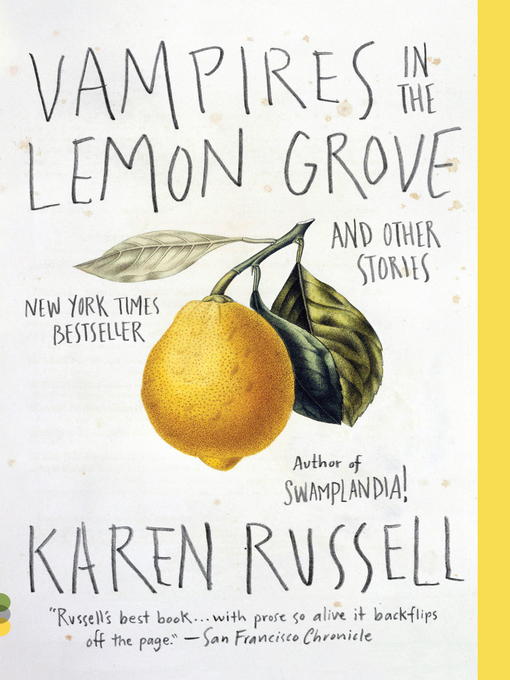From the author of the novel Swamplandia!—a finalist for the Pulitzer Prize—comes a magical and uniquely daring collection of stories that showcases the author’s gifts at their inimitable best.
Within these pages, a community of girls held captive in a Japanese silk factory slowly transmute into human silkworms and plot revolution; a group of boys stumble upon a mutilated scarecrow that bears an uncanny resemblance to a missing classmate that they used to torment; a family’s disastrous quest for land in the American West has grave consequences; and in the marvelous title story, two vampires in a sun-drenched lemon grove try to slake their thirst for blood and come to terms with their immortal relationship.
Named a Best Book of the Year by:
The Boston Globe
O, The Oprah Magazine
Huffington Post
The A.V. Club
A Washington Post Notable Book
An NPR Great Read of 2013
- Available now
- New eBook additions
- New kids additions
- New teen additions
- Most popular
- Try something different
- See all
- Available now
- New audiobook additions
- New kids additions
- New teen additions
- Most popular
- Try something different
- See all


